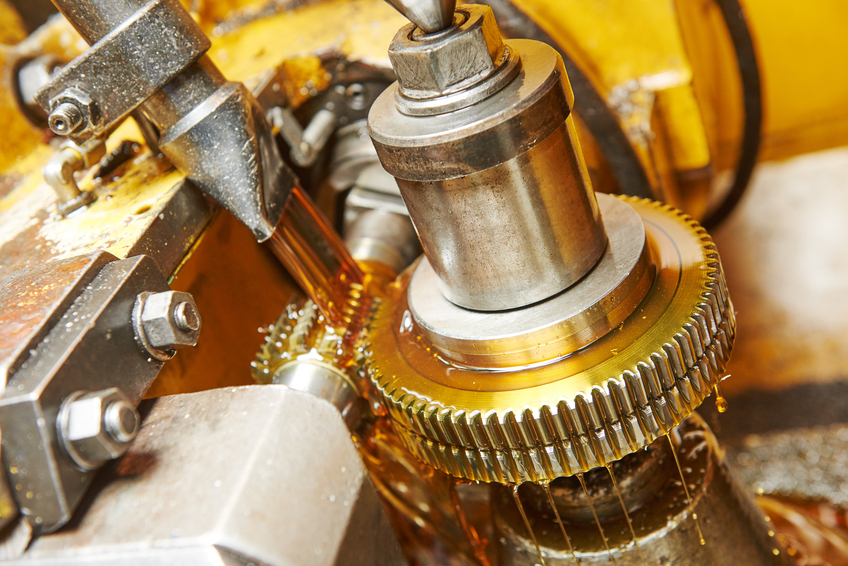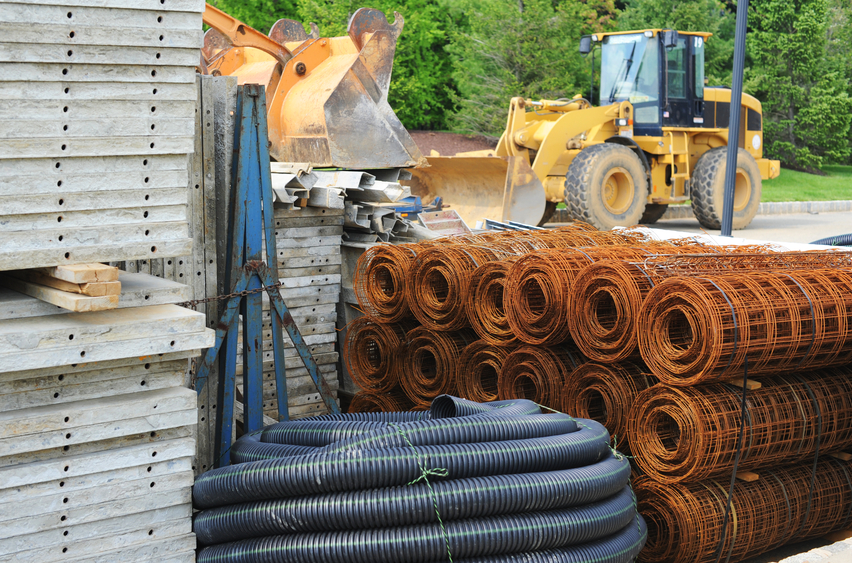Pennsylvania Materials and Ethics 24 PDH Discount Package 3
Lubricants and Hydraulic Fluids - Types (T10-001)
Lubricants and Hydraulic Fluids: Applications (T07-003)
Vapor Barriers Under Concrete Slabs - How to Select and Locate (T01-001)
General Principles of Engineering Ethics (LE2-016)

This online engineering PDH course describes the basic principles, characteristics, properties, and applications of different types of lubricating oils.
This course is intended to be a practical guide to lubrication with enough technical detail to allow personnel to recognize and easily discern differences in performance properties specified in manufacturers' product literature so that the proper lubricant for a particular application is selected.
This 4 PDH online course is applicable to engineers, design and construction personnel, and other technical professionals who are interested in gaining a better understanding of lubricants.
This PE continuing education course is intended to provide you with the following specific knowledge and skills:
- Understanding the definition of friction and mechanisms of wear
- Understanding the basic principles of lubrication
- Learning about the different types and characteristics of lubricants
- Familiarizing with the applications of lubricants
- Learning about the basics of the lubrication oil and the production methods
In this professional engineering CEU course, you need to review Chapters 2 through 4 of the "Lubricants and Hydraulic Fluids" engineering manual, published by the United States Army of Corps of Engineers (USACE), Publication Number EM 1110-2-1424, dated January 29, 2016.
Upon successful completion of the quiz, print your Certificate of Completion instantly. (Note: if you are paying by check or money order, you will be able to print it after we receive your payment.) For your convenience, we will also email it to you. Please note that you can log in to your account at any time to access and print your Certificate of Completion.

This online engineering PDH course describes the basic properties of turbine oils, hydraulic fluids, grease, solid lubricants as well as self-lubricated materials, and environmentally acceptable lubricants.
This course is intended to be a practical guide to lubrication and hydraulic fluids with enough technical detail to allow personnel to recognize and easily discern differences in performance properties specified in manufacturers' product literature so that the proper lubricant for a particular application is selected. In addition, this course discusses the considerations required to adequately maintain the integrity of the lubricants and ensure their effective performance.
This 10 PDH online course is applicable to engineers, design and construction personnel, and other technical professionals who are interested in gaining a better understanding of lubricants and hydraulic fluids.
This PE continuing education course is intended to provide you with the following specific knowledge and skills:
- Familiarizing with the basic properties and applications of turbine oils
- Understanding the purpose, physical characteristics, quality requirements, operating factors, and types of hydraulic fluids
- Familiarizing with the function, characteristics, applications, and types of grease
- Learning the basics of solid lubricants and self-lubricated materials as well as their types, characteristics, application, and production methods
- Familiarizing with the various types of environmentally acceptable lubricants, associated standards, use cases, and physical characteristics
Upon successful completion of the quiz, print your Certificate of Completion instantly. (Note: if you are paying by check or money order, you will be able to print it after we receive your payment.) For your convenience, we will also email it to you. Please note that you can log in to your account at any time to access and print your Certificate of Completion.

This engineering online PDH course covers the lubricant specifications and selection, requirements of lubricants for different types of equipment as well as the operation and maintenance considerations.
This course is intended to be a practical guide to lubrication with enough technical detail to allow personnel to recognize and easily discern differences in performance properties specified in manufacturers' product literature so that the proper lubricant for a particular application is selected. In addition, this course discusses the considerations required to adequately maintain the integrity of the lubricants and ensure their effective performance.
This 7 PDH online course is applicable to engineers, design and construction personnel, and other technical professionals who are interested in gaining a better understanding of lubricants and hydraulic fluids.
This PE continuing education course is intended to provide you with the following specific knowledge and skills:
- Learning about the basic types of gears and the lubricants they require
- Understanding the basic characteristics of bearing lubrication and their application
- Familiarizing with the lubrication of miscellaneous applications including but not limited to stormwater pumps and motors, couplings, hoists and cranes, wire ropes, and chains
- Familiarizing with the operation, maintenance, and selection considerations of lubricants
Upon successful completion of the quiz, print your Certificate of Completion instantly. (Note: if you are paying by check or money order, you will be able to print it after we receive your payment.) For your convenience, we will also email it to you. Please note that you can log in to your account at any time to access and print your Certificate of Completion.

This online engineering PDH course provides guidelines on how to properly select and locate a vapor barrier and how a vapor barrier can help earn LEED credits for building design.
A vapor barrier is one of the most critical building components used to prevent indoor air quality issues and minimize moisture-related concrete slab and flooring system failures. Proper selection of a vapor barrier based upon the criteria of low permeance, high tensile strength, high puncture resistance, and chemical resistance will ensure that the vapor barrier not only performs as an effective barrier to moisture and other vapors, but will also maintain its physical integrity during the placement of the concrete slab.
This 1 PDH online course is intended for engineers and architects who are involved with the design of waterproofing/vapor barriers for building construction.
This PE continuing education course is intended to provide you with the following specific knowledge and skills:
- How to properly select a vapor barrier
- How to properly locate a vapor barrier, either directly below a concrete slab or under a granular base and concrete slab
- How to prepare a specification for a vapor barrier
- How to earn LEED credits for including a vapor barrier in the building design
In this professional engineering CEU course, you will need to review the course document titled: "Vapor Barriers under Concrete Slabs - How to Select and Locate".
Upon successful completion of the quiz, print your Certificate of Completion instantly. (Note: if you are paying by check or money order, you will be able to print it after we receive your payment.) For your convenience, we will also email it to you. Please note that you can log in to your account at any time to access and print your Certificate of Completion.

This online engineering PDH course presents the principles of engineering ethics that every engineer is expected to live by when practicing their profession.
Engineering ethics is (1) the study of moral issues and decisions confronting individuals and organizations involved in engineering and (2) the study of related questions about moral conduct, character, ideals and relationships of peoples and organizations involved in technological development (Martin and Schinzinger, Ethics in Engineering).
This course describes the fundamental legal concepts with which very engineer should be familiar. It also presents unique disciplinary case studies selected from across the nation, as well as hypothetical ethical challenges that demonstrate how difficult it can be to apply the code of ethics for engineers.
This 2 PDH online course is applicable to all professional engineers who are either required to fulfill 2 PDH in engineering ethics or are interested in broadening their understanding of what it means to practice and uphold the honor and integrity of their engineering profession while holding the utmost safety, health, and welfare of the public.
This PE continuing education course is intended to provide you with the following specific knowledge and skills:
- Understanding the common definition of ethics regarding engineering
- Learning about the important principles of the engineer’s professional responsibility
- Learning the do’s and don’ts through several ethical and disciplinary cases
- Understanding what it means to practise and uphold the honor and integrity of the engineering profession
Upon successful completion of the quiz, print your Certificate of Completion instantly. (Note: if you are paying by check or money order, you will be able to print it after we receive your payment.) For your convenience, we will also email it to you. Please note that you can log in to your account at any time to access and print your Certificate of Completion.